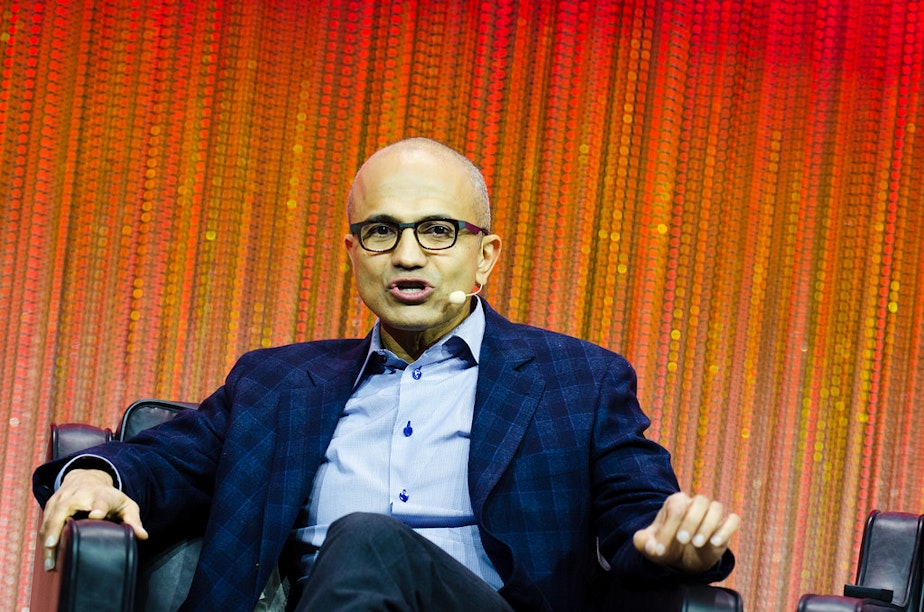Grocery wars: Microsoft and Kroger team up against Amazon

There’s a new showdown in the high-tech grocery aisle: Kroger, the parent company of Fred Meyer and QFC, has partnered with Microsoft to take on Amazon and Whole Foods.
Kroger and Microsoft have unveiled new pilot grocery stores in Redmond, Washington and Ohio that include "smart shelves."
The concept, as Geekwire’s Todd Bishop explains, is that you create a shopping list in advance — and as you walk around the store, you are guided to the items you want. You use your phone to scan items to compile as you go before checking out at the front.
The Kroger-Microsoft pilot offers a middle ground between a traditional grocery experience and Amazon Go, where you take the item and walk out, no phone or human interaction required.
“It’s another example of this fascinating phenomenon where the tricks of the trade of the online world are going to be applied to these physical stores,” Bishop told Bill Radke on KUOW’s The Record.
The selling point may be convenience or customization, but the real advantage is to the store.
“To the extent that the storeowner has this information based on my weeks and weeks and weeks of shopping, and the Microsofts of the world has this information as well and can potentially sell it to other players in the marketplace, this becomes an incredibly useful resource to target information and deals to you,” said Akshay Rao, chair in marketing at the Carlson School of Management, University of Minnesota.
Bishop said these companies are going to be facing heightened privacy concerns from the public.
“The practice of tracking and cookies in the online world – people kind of accept it right now,” Bishop said. “Every time the paradigm is shifting to the physical world, new questions are raised, because this is our real life.”
Rao brought up another possible downside: what he calls “bilateral monopoly.” That means that the relationship between the consumer and store can become so intimate that the company has greater influence on your buying habits — and makes it harder for a competitor to come in and entice you with better offers.
“It has me as hostage and it can take advantage of that bilateral monopoly by manipulating me into purchasing things that I wouldn’t otherwise have purchased,” Rao said.
Bishop reported that this technology could eventually appear in 2,800 retail food stores owned by Kroger. There are currently nine Amazon Go locations (and one pending) spread among Seattle, Chicago and San Fransisco, according to the company's website.
Produced for the web by Kara McDermott.




